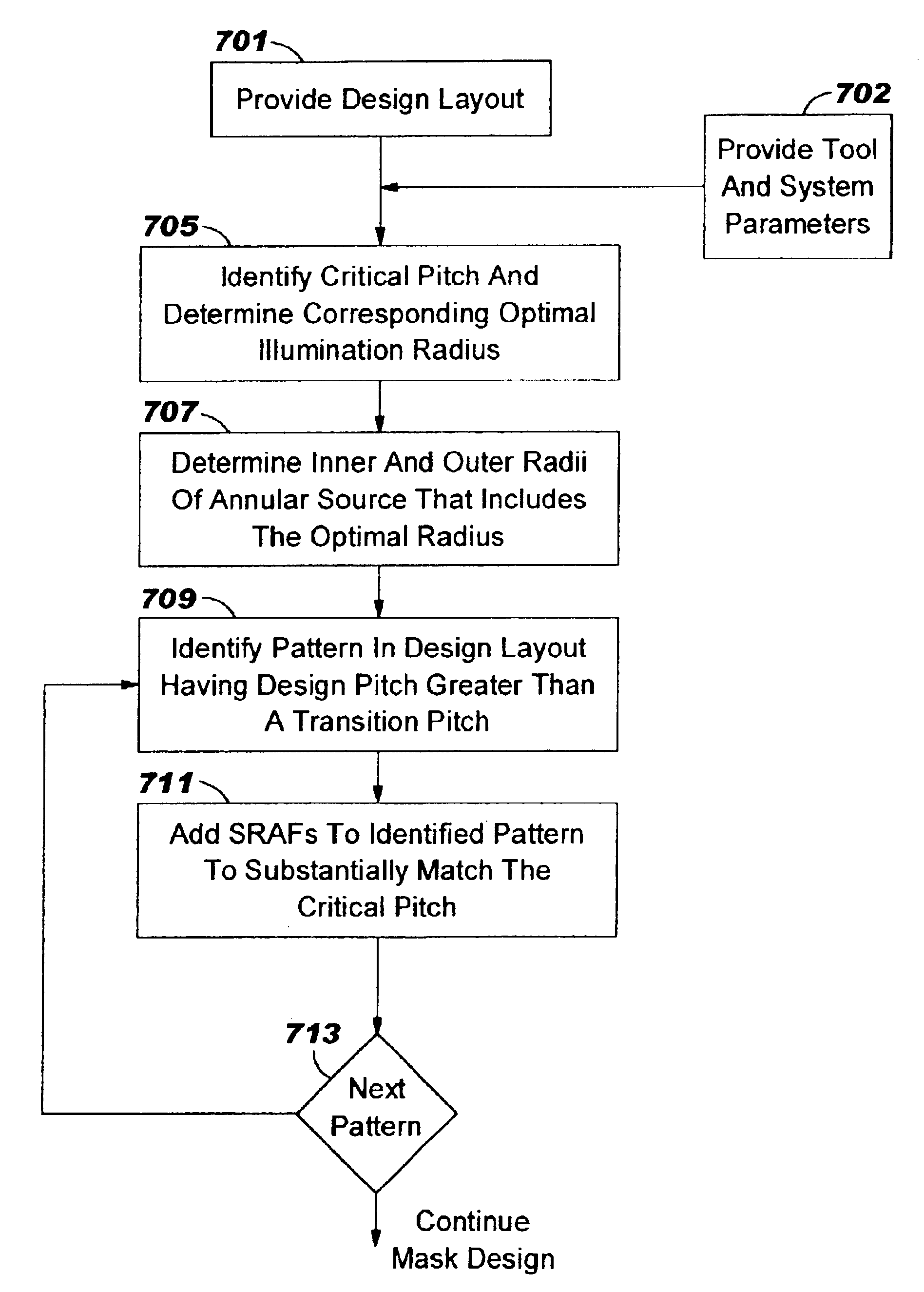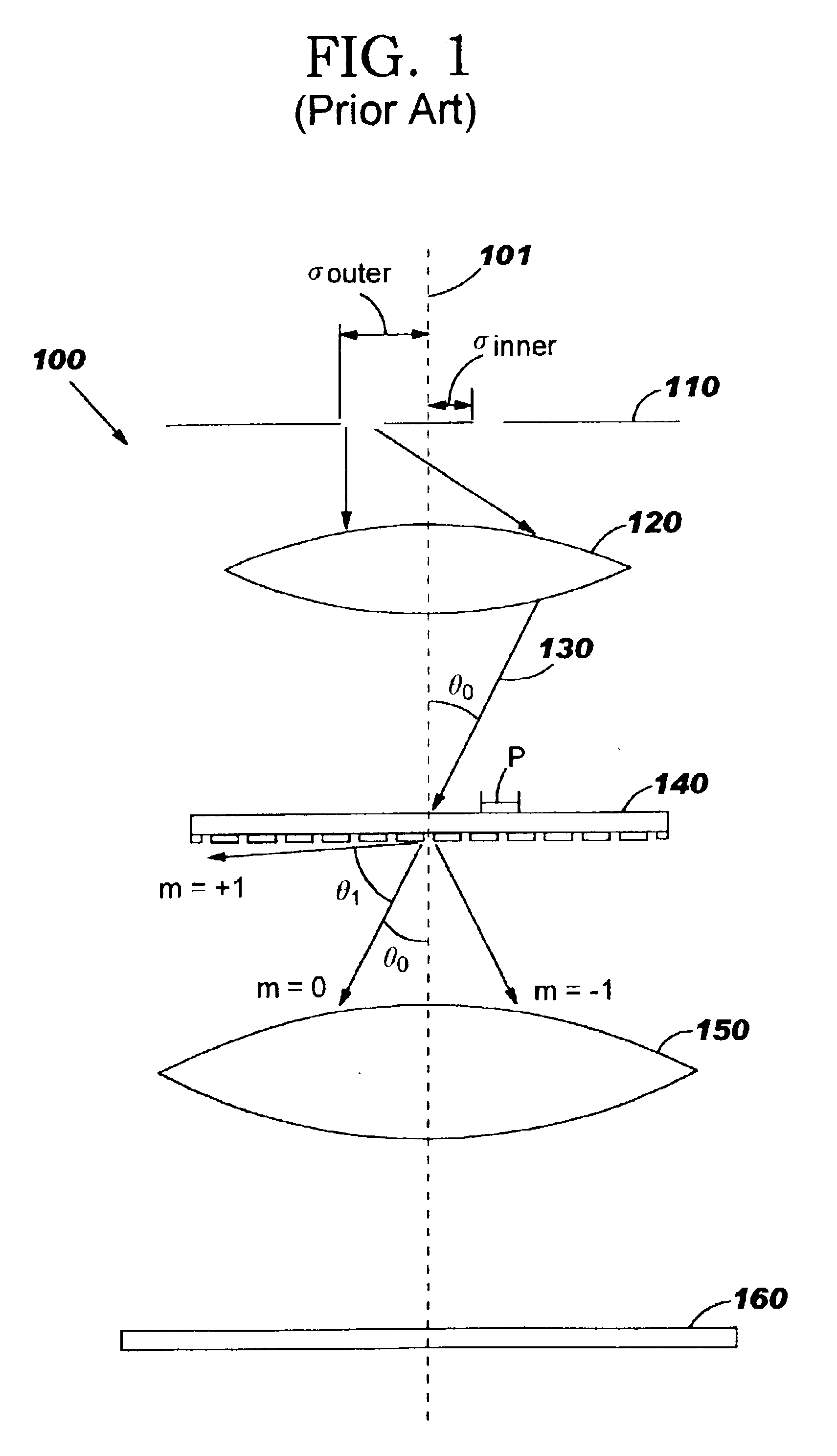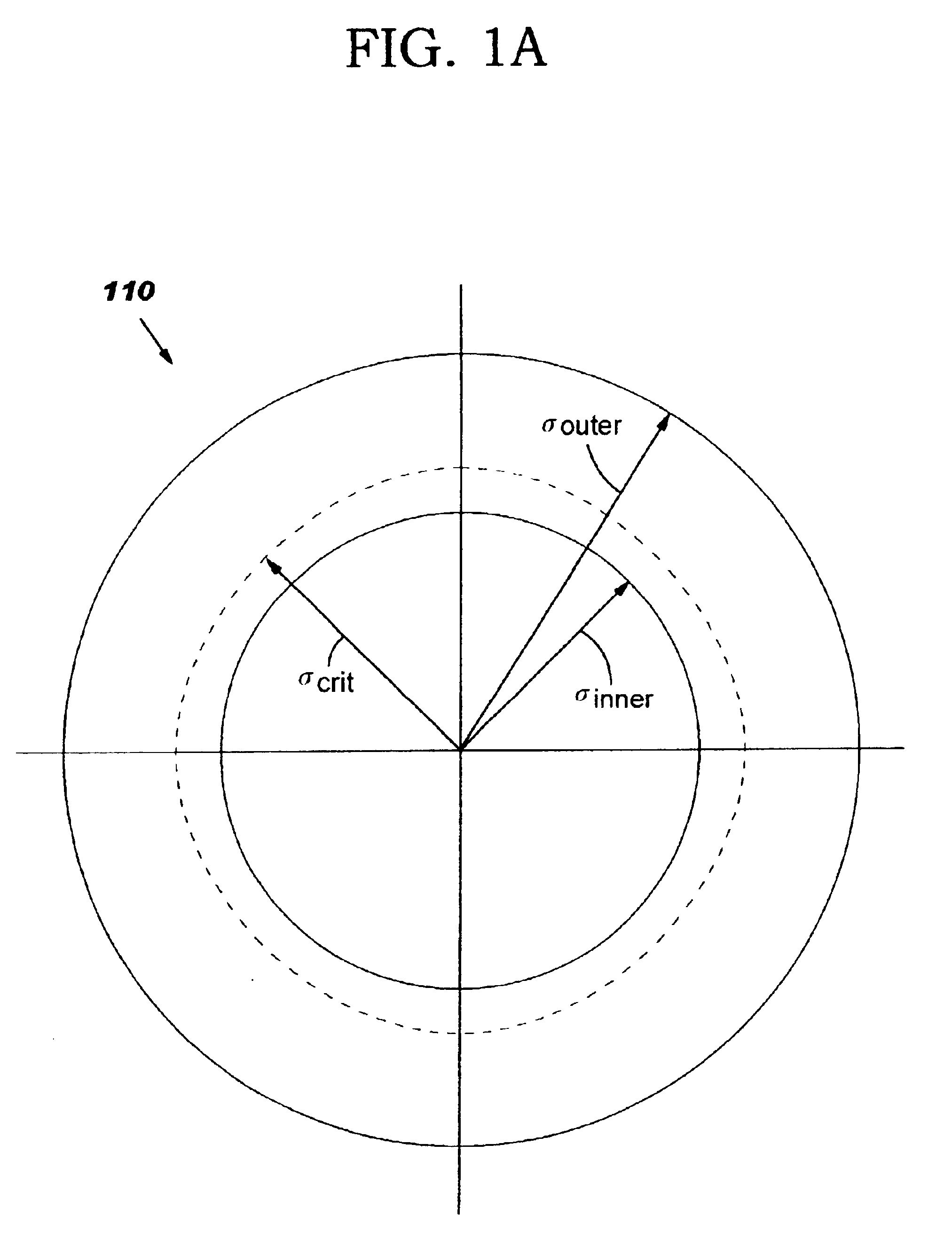Pitch-based subresolution assist feature design
a subresolution and feature technology, applied in the field of integrated circuit fabrication, can solve the problems of imposing formidable problems, degrading process windows of pitches other than primary pitches, and little improvement of resolution for isolated lines, etc., to achieve fast, cost-effective, and maximum process window
- Summary
- Abstract
- Description
- Claims
- Application Information
AI Technical Summary
Benefits of technology
Problems solved by technology
Method used
Image
Examples
Embodiment Construction
[0046]Reference may now be made to the following detailed description of preferred embodiments of the invention, taken in conjunction with the accompanying drawings, which are not necessarily drawn to scale.
[0047]In accordance with the present invention, a method is provided for designing a lithographic mask for use with a lithographic projection system that has an annular illumination source so that the lithographic process window is optimized. More particularly, a preferred embodiment of the method provides a method for rapidly determining the configuration (for example, the number and spacing) of subresolution assist features (SRAFs), that is matched to the radial coordinates of the annular illumination source that are optimal for critical pitches of the integrated circuit (IC) design layout to be printed.
[0048]A lithographic projection system that has an annular illumination source having a radius σ is known to provide a good lithographic process window for a periodic (grating) ...
PUM
| Property | Measurement | Unit |
|---|---|---|
| refractive index | aaaaa | aaaaa |
| threshold | aaaaa | aaaaa |
| wavelength | aaaaa | aaaaa |
Abstract
Description
Claims
Application Information
 Login to View More
Login to View More - R&D
- Intellectual Property
- Life Sciences
- Materials
- Tech Scout
- Unparalleled Data Quality
- Higher Quality Content
- 60% Fewer Hallucinations
Browse by: Latest US Patents, China's latest patents, Technical Efficacy Thesaurus, Application Domain, Technology Topic, Popular Technical Reports.
© 2025 PatSnap. All rights reserved.Legal|Privacy policy|Modern Slavery Act Transparency Statement|Sitemap|About US| Contact US: help@patsnap.com



